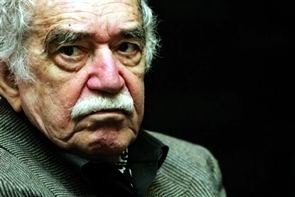(单词翻译:单击)
名著阅读
He did not give it, as a matter of fact. But two weeks later General Teófilo Vargas was cut to bits by machetes in an ambush and Colonel Aureli-ano Buendía assumed the main command. The same night that his authority was recognized by all the rebel commands, he woke up in a fright, calling for a blanket.
An inner coldness which shattered his bones and tortured him even in the heat of the sun would not let him sleep for several months, until it became a habit. The intoxication of power began to break apart under waves of discomfort.
Searching for a cure against the chill, he had the young officer who had proposed the murder of General Teófilo Vargas shot. His orders were being carried out even before they were given, even before he thought of them, and they always went much beyond what he would have dared have them do. Lost in the solitude of his immense power, he began to lose direction. He was bothered by the people who cheered him in neighboring villages, and he imagined that they were the same cheers they gave the enemy. Everywhere he met adolescents who looked at him with his own eyes, who spoke to him with his own voice, who greeted him with the same mistrust with which he greeted them, and who said they were his sons. He felt scattered about, multiplied, and more solitary than ever. He was convinced that his own officers were lying to him. He fought with the Duke of Marlborough. "The best friend a person has," he would say at that time, "is one who has just died." He was weary of the uncertainty, of the vicious circle of that eternal war that always found him in the same place, but always older, wearier, even more in the position of not knowing why, or how, or even when. There was always someone outside of the chalk circle. Someone who needed money, someone who had a son with whooping cough, or someone who wanted to go off and sleep forever because he could not stand the shit taste of the war in his mouth and who, nevertheless, stood at attention to inform him: "Everything normal, colonel." And normality was precisely the most fearful part of that infinite war: nothing ever happened. Alone, abandoned by his premonitions, fleeing the chill that was to accompany him until death, he sought a last refuge in Macondo in the warmth of his oldest memories. His indolence was so serious that when they announced the arrival of a commission from his party that was authorized to discuss the stalemate of the war, he rolled over in his hammock without completely waking up.
"Take them to the whores," he said.
They were six lawyers in frock coats and top hats who endured the violent November sun with stiff stoicism. úrsula put them up in her house. They spent the greater part of the day closeted in the bedroom in hermetic conferences and at dusk they asked for an escort and some accordion players and took over Catarino's store. "Leave them alone," Colonel Aureli-ano Buendía ordered. "After all, I know what they want." At the beginning of December the long-awaited interview, which many had foreseen as an interminable argument, was resolved in less than an hour.
In the hot parlor, beside the specter of the pianola shrouded in a white sheet, Colonel Aureli-ano Buendía did not sit down that time inside the chalk circle that his aides had drawn. He sat in a chair between his political advisers and, wrapped in his woolen blanket, he listened in silence to the brief proposals of the emissaries. They asked first that he renounce the revision of property titles in order to get back the support of the Liberal landowners. They asked, secondly, that he renounce the fight against clerical influence in order to obtain the support of the Catholic masses. They asked, finally, that he renounce the aim of equal rights for natural and illegitimate children in order to preserve the integrity of the home.
"That means," Colonel Aureli-ano Buendía said, smiling when the reading was over, "that all we're fighting for is power."
"They're tactical changes," one of the delegates replied. "Right now the main thing is to broaden the popular base of the war. Then we'll have another look."
One of Colonel Aureli-ano Buendía's political advisers hastened to intervene.
他确实没有发出这样的命令。然而两个星期之后,泰菲罗将军中了埋伏,被大砍刀剁成内酱,于是奥雷连诺上校担任了总指挥。就在那天夜里,他的权力得到起义部队所有的指挥官承认以后,他突然惊恐地醒来,大叫大嚷地要人给他一条毛毯。
身体内部彻骨的寒冷,在灼热的太阳下也折磨着他,在许多肩里都使他睡不着觉,终于变成一种病症,他原来醉心于权力,现在一阵一阵地对自己感到很不满意了。
为了治好寒热病,他下令枪毙劝他杀死泰菲罗·瓦加斯将军的年轻军官。但他还没发出命令,甚至还没想到这种命令,他的部下就那么干了,他们经常超过他自己敢于达到的界线。他虽有无限的权力,可是陷入孤独,开始迷失方向。现在,在他占领的城镇里,群众的欢呼也惹他生气,他觉得这些人也是这样欢迎他的敌人的。在每一个地方,他都遇见一些年轻人,他们用他那样的眼睛看他。用他那样的腔调跟他说话,对他采取他对他们的那种怀疑态度,而且把自己叫做他的儿子。他觉得奇怪——他仿佛变成了许多人,但是更加孤独了。他怀疑自己的军官都在骗他,他对马博罗公爵也冷淡了。“最好的朋友是已经死了的,”当时他喜欢这么说。由于经常多疑,由于连年战争的恶性循环,他已困乏不堪;他绕来绕去,实际上是原地踏步,但却越来越衰老,越来越精疲力尽,越来越不明白:为什么?怎么办?到何时为止?在粉笔划的圆圈外面,经常都站着什么人:有的缺钱;有的儿子患了百日咳;有的希望长眠,因为对肮脏的战争已经感到厌恶;但是有的却鼓起余力,采取“立正,,姿势,报告说:”一切正常,上校。“然而,在绵延不断的战争中,”正常“恰恰是最可怕的:表示毫无进展。奥雷连诺上校陷入孤独,不再产生什么预感,为了摆脱寒热病(这种病一直陪他到死)。他打算在马孔多找到最后的栖身之所,在住事的回忆中得到温暖。他的消极情绪是那么严重,有人报告他自由党代表团前来跟他讨论最重要的政治问题时。他只是在吊床上翻了个身,甚至没让自己睁开眼睛。
“带他们去找妓女吧,”他嘟哝着说。
代表团成员是六个穿着礼服,戴着高筒帽的律师,以罕见的斯多葛精神忍受了+一月里灼热的太阳。乌苏娜让他们住在她家里。白天的大部分时间,他们都呆在卧室内秘密商量,晚上则要求给他们一个卫队和一个手风琴合奏队,并且包下了整个卡塔林诺游艺场。“别打搅他们,”奥雷连诺上校命令说。“我清楚地知道他们需要什么。”十二月初举行的期待已久的谈判用了不到一个小时,虽然许多人都以为这次谈判会变成没完没了的争论。
在闷热的客厅里,幽灵似的自动钢琴是用裹尸布一样的白罩单遮住的,奥雷连诺上校的副官们在钢琴旁边用粉笔划了个圈子;可是上校这一次没有走进圈子。他坐在他那些政治顾问之间的椅子上,用毛毯裹着身子,默不作声地倾听代表团简短的建议。他们要求他:第一,不再重新审核土地所有权,以便恢复自由派地主对自由党的支持;第二,不再反对教会势力,以便取得信徒们的支持,第三,不再要求婚生子女和非婚生子女的平等权利,以便维护家庭的圣洁和牢固关系。
“这就是说,”在建议念完之后,奥雷连诺上校微笑着说,“咱们战斗只是为了权力罗。”
“从策略上考虑,我们对自己的纲领作了这些修改,”其中一个代表回答。“目前最主要的是扩大我们的群众基础,其他的到时候再说。”
奥雷连诺上校的一位政治顾问连忙插活。
背景阅读

作者简介:
加西亚·马尔克斯(1927一)哥伦比亚作家,记者。生于马格达莱纳省阿拉卡塔卡镇。父亲是个电报报务员兼顺势疗法医生。他自小在外祖父家中长大。外祖父当过上校军官,性格善良、倔强,思想比较激进;外祖母博古通今,善讲神话传说及鬼怪故事,这对作家日后的文学创作有着重要的影响。
加西亚·马尔克斯作品的主要特色是幻想与现实的巧妙结合,以此来反映社会现实生活,审视人生和世界。重要作品有长篇小说《百年孤独》(1967)《家长的没落》(1975)、《霍乱时期的爱情》(1985)等。
本书简介:
《百年孤独》内容复杂,人物众多,情节离奇,手法新颖。马尔克斯在书中溶汇了南美洲特有的五彩缤纷的文化。他通过描写小镇马孔多的产生、兴盛到衰落、消亡,表现了拉丁美洲令人惊异的疯狂历史。小说以“汇集了不可思议的奇迹和最纯粹的现实生活”荣获1982年诺贝尔文学奖。
创作历程:
从1830年至十九世纪末的70年间,哥伦比亚爆发过几十次内战,使数十万人丧生。本书以很大的篇幅描述了这方面的史实,并且通过书中主人公带有传奇色彩的生涯集中表现出来。政客们的虚伪,统治者们的残忍,民众的盲从和愚昧等等都写得淋漓尽致。作家以生动的笔触,刻画了性格鲜明的众多人物,描绘了这个家族的孤独精神。在这个家族中,夫妻之间、父子之间、母女之间、兄弟姐妹之间,没有感情沟通,缺乏信任和了解。尽管很多人为打破孤独进行过种种艰苦的探索,但由于无法找到一种有效的办法把分散的力量统一起来,最后均以失败告终。这种孤独不仅弥漫在布恩迪亚家族和马孔多镇,而且渗入了狭隘思想,成为阻碍民族向上、国家进步的一大包袱。
作家写出这一点,是希望拉丁美洲民众团结起来,共同努力摆脱孤独。所以,《百年孤独》中浸淫着的孤独感,其主要内涵应该是对整个苦难的拉丁美洲被排斥现代文明世界的进程之外的愤懑[mèn]和抗议,是作家在对拉丁美洲近百年的历史、以及这块大陆上人民独特的生命力、生存状态、想象力进行独特的研究之后形成的倔强的自信。这个古老的家族也曾经在新文明的冲击下,努力的走出去寻找新的世界,尽管有过畏惧和退缩,可是他们还是抛弃了传统的外衣,希望溶入这个世界。可是外来文明以一种侵略的态度来吞噬这个家族,于是他们就在这样一个开放的文明世界中持续着“百年孤独”。作者表达着一种精神状态的孤独来批判外来者对拉美大陆的一种精神层面的侵略,以及西方文明对拉美的歧视与排斥。“羊皮纸手稿所记载的一切将永远不会重现,遭受百年孤独的家族,注定不会在大地上第二次出现了。” 作者用一个毁灭的结尾来表达了自己深深的愤懑。


